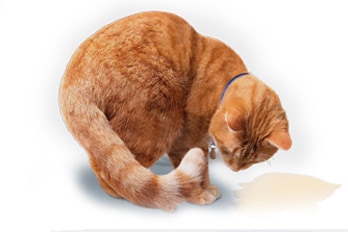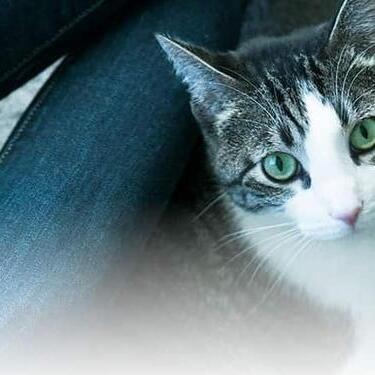
-
Find the right food for your pet
Take this quiz to see which food may be the best for your furry friend.
Find the right food for your pet
Take this quiz to see which food may be the best for your furry friend.
Featured products
 Adult 7+ Perfect Digestion Chicken, Whole Oats & Brown Rice Recipe Dog Food
Adult 7+ Perfect Digestion Chicken, Whole Oats & Brown Rice Recipe Dog FoodScience Diet's breakthrough nutrition supports ultimate digestive well-being & healthy microbiome for dogs age 7+
Shop Now Adult Healthy Cuisine Roasted Chicken, Carrots & Spinach Stew Dog Food
Adult Healthy Cuisine Roasted Chicken, Carrots & Spinach Stew Dog FoodDelicious roasted chicken paired with tender vegetables in a succulent stew
Shop Now Small & Mini Savory Stew with Chicken & Vegetables Dog Food
Small & Mini Savory Stew with Chicken & Vegetables Dog FoodA delicious complement to the nutrition of Science Diet Small & Mini 7+ dog food
Shop NowFeatured products
 Adult 7+ Senior Vitality Chicken & Vegetable Stew Cat Food
Adult 7+ Senior Vitality Chicken & Vegetable Stew Cat FoodImproves Everyday Ability to Get Up & Go
Shop Now Adult Savory Entrée Can Variety Pack Cat Food
Adult Savory Entrée Can Variety Pack Cat FoodPrecisely balanced nutrition with the delicious taste of savory minced chicken to help fuel the energy needs of cats during the prime of their life
Shop Now Adult 7+ Tender Tuna Dinner Cat Food
Adult 7+ Tender Tuna Dinner Cat FoodWith delicious chunks in a decadent gravy
Shop Now -
Dog
- Dog Tips & Articles
-
Health Category
- Weight
- Food & Environmental Sensitivities
- Urinary
- Digestive
- Joint
- Kidney
-
Life Stage
- Puppy Nutrition
- Adult Nutrition
- Senior Nutrition
Cat
- Cat Tips & Articles
-
Health Category
- Weight
- Skin & Food Sensitivities
- Urinary
- Digestive
- Kidney
-
Life Stage
- Kitten Nutrition
- Adult Nutrition
Featured articles
 Do Dogs and Cats have Belly Buttons?
Do Dogs and Cats have Belly Buttons?Learn whether cats & dogs have belly buttons like humans, what the function is, and if there are any health concerns associated with it.
Read More Does My Pet Hate Me?
Does My Pet Hate Me?Learn tips for bonding with your pet if you've ever thought, 'My dog doesn't like me, or 'Why do I have a standoffish cat?'
Read More Why Are Dogs and Cats So Cute?
Why Are Dogs and Cats So Cute?If waggy puppy dog tails and furry kitten yawns make you swoon, you're not alone. Why are cats so cute? And, dogs too! Let's find out!
Read More -


Print Questions, to Ask Your Vet
What is Feline Lower Urinary Tract Disease?
FLUTD stands for Feline Lower Urinary Tract Disease and is a term used to describe any group of disorders or diseases that affects the lower urinary tract (bladder or urethra) in cats. The most common disorder of the group is feline idiopathic cystitis (FIC). FIC involves inflammation by an unknown cause, but stress is thought to be a significant factor. FLUTD is also associated with the formation of crystals/stones in the urinary tract that can cause numerous and painful ailments for your cat. The two most common types of crystals/stones are struvite and calcium oxalate. FLUTD is serious and requires medical attention. Fortunately, you can help your cat recover with treatment from your veterinarian and the right nutrition.
Why is it important to understand FLUTD?
Inappropriate urination is the number one behavior problem in cats. Many cats are given up to shelters for urinating outside of the litter box. If not properly treated, inappropriate urination can affect the cleanliness/safety of your home and the bond you share with your cat. The good news is that often, this problem is caused by a feline lower urinary tract disease (FLUTD) and it is a treatable medical condition.

What causes urinary tract disease?
FLUTD is a multifactor disease. There is no single cause of feline urinary tract disease. Veterinarians do recognize that there are components that may contribute to the prevalence of the disease. For more detailed information, always contact your veterinarian.
Risk factors include the following:
- Cats more than 1 year of age are most susceptible.
- Overweight cats, lack of exercise.
- History of chronic kidney disease or urinary tract procedures.
- Both male and females cats get the disease with equal frequency, but neutered male cats have a greater risk of life-threatening urethral obstruction from the crystals or stones.
Nutritional Risks:
You already know that the food you feed your cat is extremely important to her overall health. But feeding the wrong food can contribute to the development of a urinary tract disease (FLUTD). With FLUTD, crystals or stones form within the urinary tract and cause irritation, pain and possibly blockage. In severe cases, this can lead to kidney damage or may even be fatal if not properly treated.
- An abundance of certain minerals such as calcium, phosphorus and magnesium --- often found in grocery store brand cat food --- can cause crystals to form in the urine, which sometimes leads to urinary stones.
- Food influences the pH, or acidity, of urine. Urine should be moderately acidic for a healthy urinary tract because it’s harder for struvite crystals to grow in an acidic environment
Home Environment Risks:
- Inside-only cat
- Multiple pet households
- Stress: This could include house guests, conflict with other pets, or a lack of places to rest or hide
- Not drinking enough water can increase the risk of urinary tract disease in cats
- Cats can internalize stress in their urinary tract, which can lead to painful inflammation
- Cats can associate painful urination with the litter box and stop using it
Warning Signs and Symptoms of Urinary Tract Disease
If your cat exhibits any of the warning signs of FLUTD, contact your veterinarian immediately. Especially if your cat is not urinating freely, a urinary blockage may be the cause and this condition may be life threatening. Consult your veterinarian immediately.
Signs of feline bladder health problems
- Urinating outside of the litter box (Inappropriate urination)
- Straining when urinating
- Loss of bladder control
- Increased frequency of urination, usually passing small amounts of urine
- Pink, dark or bloody urine
- Crying out in pain/vocalizing during attempts to urinate
- Licking the genital area
- Reduced appetite
- Lack of energy or interest in normal activities


Tasty Tips
Treatment: The importance of nutrition
The food your cat eats plays an important role in her overall health and well-being. Cat foods high in magnesium, phosphorus, protein and calcium have been linked to stone formation. Veterinarians believe feeding a bladder health cat food with restricted amounts of these minerals can assist in the dissolution of some types of stones that have formed in a cat’s urinary tract.
Balanced nutrition is an essential part of an active, healthy lifestyle. If your cat has been diagnosed with a urinary tract problem, it’s important to feed her the right cat food. The right nutrition can help control mineral levels, maintain a healthy urine pH, and help reduce inflammation to safely resolve urinary issues. For accurate diagnosis and treatment options, always consult your veterinarian and ask them to recommend the best food for your cat’s urinary tract health.
Additional ways to manage FLUTD include the following:
- Increasing water consumption
- Make sure water is clean, fresh and available at all times
- Feeding moist or canned cat food also helps increase water consumption
- Feed several small meals during the day instead of one or two larger meals
- Decrease stress in the environment
- Provide scratching posts and schedule time during the day to play with your cat
- Monitor the changes in the home and any conflicts with other pets in the house
- Cats are very sensitive to their environments and reducing potential causes of stress, especially for a cat with FLUTD, can go a long way to improving your cat’s life.
What are the chances of FLUTD coming back?
Urinary tract disease is potentially a lifelong disease. Any cat that has been treated for urinary tract disease runs the risk of contracting it again. Even with the best treatment, some cats may have recurring signs or periodic episodes. Therefore, it's important to continue your veterinarian’s food recommendation to manage the disease with a urinary health cat food and watch closely for recurrence of signs and symptoms.
Urinary Health Questions to Ask Your Veterinarian
- What may be causing my cat’s accidents? What are the short-term and long-term treatment options?
- Be sure to ask if infrequent or non-patterned accidents may be a sign of a more serious problem.
- Ask if the problem is behavioral, environmental or medical.
- Ask how nutrition and water consumption may be affecting your cat’s health.
- Should nutrition be a part of my cat’s treatment regimen? Would you recommend a Hill’s® Prescription Diet® cat food for my cat’s bladder health?
- What if I have multiple cats? Can I feed them all the same cat food?
- How can nutrition help? What is the benefit of feeding therapeutic nutrition versus administering pills?
- What are the pros and cons of using nutrition to help manage my cat’s urinary health?
- Which form of cat food is better for urinary issues, kibble or wet? Why?
- If you feed your cat a mixture of kibble and wet food, ask which therapeutic formulas can be mixed.
- How long will I need to feed the recommended food to my cat?
- Ask how feeding a therapeutic cat food can help promote long-term urinary health for my cat?
- What is the best way (email/phone) to reach you or your hospital if I have questions?
- Ask if you need a follow-up appointment.
- Ask if a reminder email or notice will be sent.


One of our staff authors prepared this article for you
Related products

Precisely balanced nutrition with the delicious taste of savory minced chicken to help fuel the energy needs of cats during the prime of their life

With delicious chunks in a decadent gravy

Improves Everyday Ability to Get Up & Go

Supports energy level and beautiful fur in mature cats
Related articles

Discover how to identify cat sensitive skin and what you can do to help your cat thrive from head to paw.

Discover the benefits of Hill's line of kitten foods and how they provide complete and balance nutrition for growing kittens.

Brushing your cat's teeth is just as important as brushing your own. Learn signs or oral health problems in your cat and how to avoid them.

Discover which cat toys games your feline friend might like, and how they are great sources of exercise. Explore our library of articles to learn more.

Put your cat on a diet without them knowing
Our low calorie formula helps you control your cat's weight. It's packed with high-quality protein for building lean muscles, and made with purposeful ingredients for a flavorful, nutritious meal. Clinically proven antioxidants, Vitamin C+E, help promote a healthy immune system.
Put your cat on a diet without them knowing
Our low calorie formula helps you control your cat's weight. It's packed with high-quality protein for building lean muscles, and made with purposeful ingredients for a flavorful, nutritious meal. Clinically proven antioxidants, Vitamin C+E, help promote a healthy immune system.

